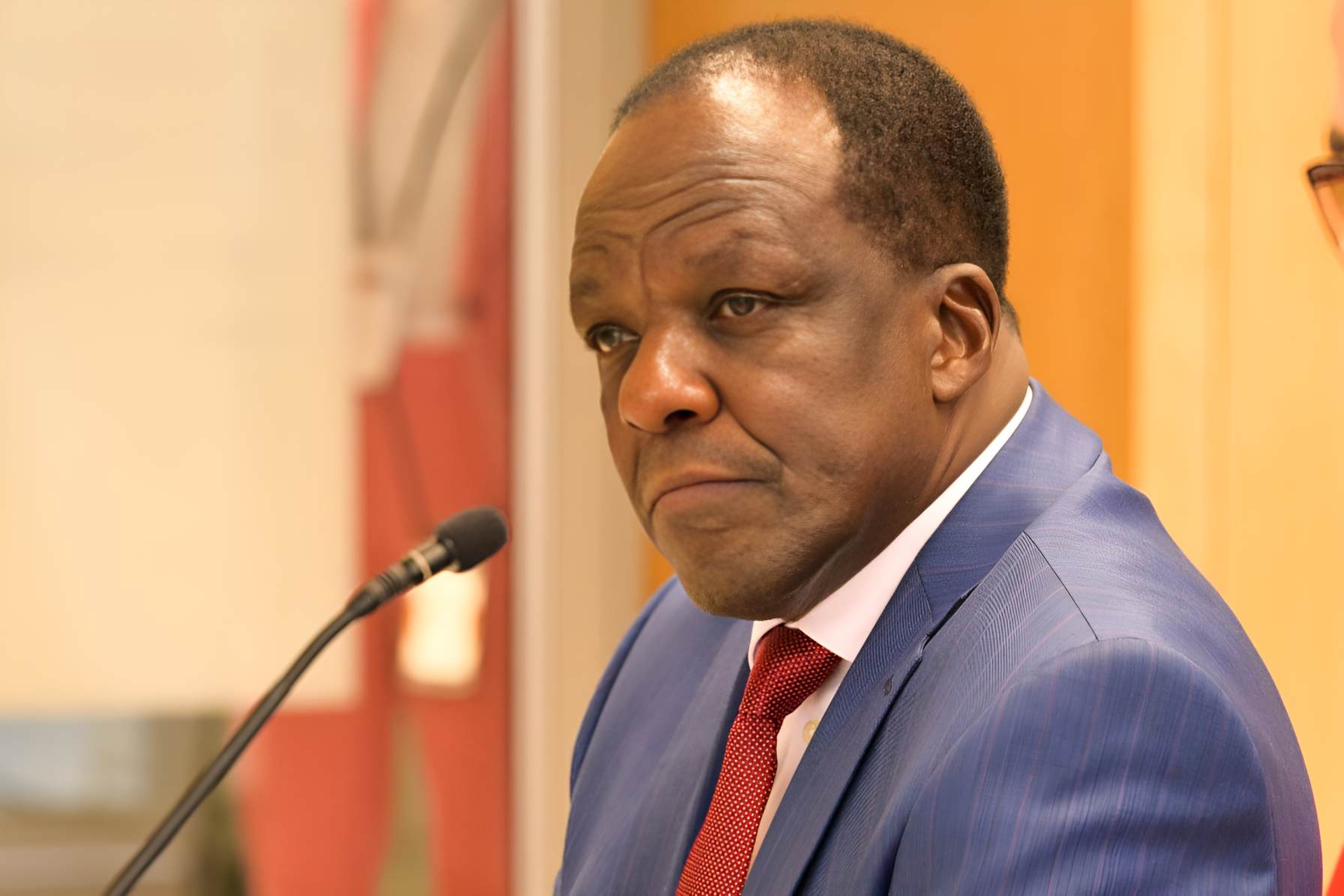Cooperatives face deregistration as Oparanya enforces reforms

Cooperatives Cabinet Secretary Wycliffe Oparanya has ordered the immediate deregistration of all cooperative societies that have not submitted their annual returns for the past three years, in a sweeping reform aimed at restoring transparency and accountability in the sector.
Speaking during the Cooperative Leadership Forum organised by the Cooperative Alliance of Kenya and the Institute of Directors of Kenya, Oparanya said failure to comply with statutory requirements under the Cooperative Societies Act will result in the loss of corporate status.
“Let me be clear: any cooperative society that has failed to file its returns for the last three years and within the stipulated timelines will be struck off from the Cooperative Register and will cease to exist as a corporate entity. This directive takes immediate effect, and all cooperative entities are expected to comply fully,” he said.
He directed all cooperative societies, including unions, national cooperative organisations, and apex cooperatives, to file their returns by April 30 every year, as required by law.
“In response to this concern, and in exercise of the powers granted to me under Section 93A(d) of the Cooperative Societies Act and Rule 14 of the Cooperative Societies Rules, I hereby direct all cooperative societies, including unions, national cooperative organisations, and apex cooperatives, to file their annual returns no later than the 30th of April each year,” said Oparanya.
He said each filing must include audited financial statements approved for that year, along with up-to-date details of all elected officials and the chief executive officer.
“These returns must include a duly approved copy of the audited financial statements for the year in question, as well as updated details of all elected officials and the chief executive officer—specifically their full names, physical addresses, telephone numbers, and email addresses,” he added.
Oparanya, who was accompanied by Principal Secretary Patrick Kilemi and Commissioner of Cooperatives David Obonyo, also ordered large cooperatives to amend their by-laws within six months and adopt a delegate system for general meetings.
“In practice, for societies with more than 10,000 members, especially those with broad geographic coverage, it is neither practical nor efficient to hold general meetings with every member physically present. This has often led to disorganised meetings and poor decision-making processes,” he said.
He said the delegate system should be limited to 500 members, fairly selected and reflecting gender, geographical balance, age diversity, and inclusion of persons with disabilities.
“These directives are not mere administrative measures, they are essential steps towards building a cooperative movement that is transparent, participatory, and resilient. I urge all cooperative leaders and members to take these directives seriously and implement them without delay,” Oparanya said.
He said the reforms were necessary to restore public trust in the cooperative sector, which has been affected by weak governance and mismanagement.
“These are not theoretical concerns. They are real and visible in the form of shuttered saccos, disillusioned members, and communities that are increasingly questioning the relevance and reliability of cooperative institutions,” he said.
Oparanya noted that with over 31,000 registered cooperatives, mostly saccos, the movement remains key to the government’s Bottom-up Economic Transformation Agenda through grassroots empowerment and financial inclusion.
“Kenya’s cooperative movement has, for over a century, served as a formidable engine for economic empowerment and social transformation. It has enabled millions of farmers, traders, and entrepreneurs to access opportunities and assert their dignity through enterprise,” he said.
He reaffirmed the ministry’s commitment to support cooperative entrepreneurship through better access to finance, stronger regulation, and improved infrastructure.
He said the Cooperative Societies Bill, 2024, now before Parliament, will enforce transparency, ethical leadership, and anti-corruption safeguards, while setting education and competency standards for cooperative leaders.
“The Bill strengthens good governance with robust oversight and safeguards institutional integrity through strict penalties and self-regulation frameworks, all designed to restore trust and ensure the sustainability of Kenya’s cooperatives sector,” said Oparanya.
He also highlighted broader reforms, including governance reviews, legal realignment, and institutional restructuring. In May, a five-member expert team was appointed to review the Sacco Societies Act, 2008, to improve oversight and align it with global standards.
The ministry has also installed a two-year transition board at the Kenya Union of Savings and Credit Cooperatives (KUSCCO) to lead restructuring and restore credibility in the organisation.
Oparanya said the government is paying special attention to producer cooperatives, especially in agriculture, and plans to revive coffee cooperatives by strengthening leadership and accountability.
He clarified that the reforms are not meant to punish but to restore trust and ensure long-term sustainability.
“They are designed to rebuild trust and position our cooperatives for sustainable growth. We intend to implement them in full consultation and partnership with all sector stakeholders,” he said.
He also announced plans for a Deposit Guarantee Fund to protect sacco members’ savings and improve financial stability, alongside partnerships with fintech firms to provide risk management tools.
“Effective risk management is crucial for the continued success of cooperatives,” Oparanya said.
He urged cooperative leaders to embrace continuous training and review their governance structures to meet current legal, financial and ethical demands.
“We must choose integrity over indulgence. We must choose service over personal status. We must choose to build a future of trust, resilience, and shared prosperity for all Kenyans through vibrant cooperatives and empowered MSMEs,” said Oparanya.
